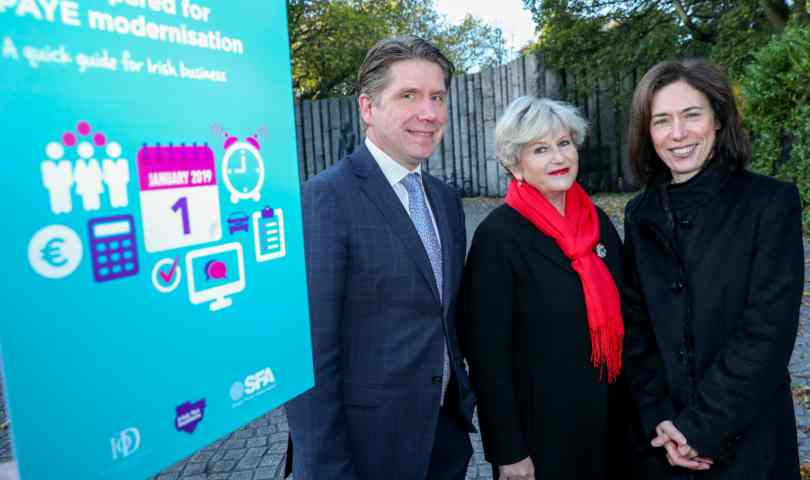• Employers are required to provide detailed reports on pay and tax deductions to Revenue on or before every pay date. Every time you pay your employees and directors, your software should automatically search for RPNs, which will provide you with the details required to calculate the correct payroll deductions.
• RPN is Revenue Payroll Notification. This will replace the current employer copy of the tax credit certificate (P2C). The payroll software will search for the relevant RPNs from Revenue as part of the normal payroll process. If you do not use a payroll package you will be able to request an RPN for each employee through Revenue Online Service (ROS).
• RPNs can change frequently depending on an employee’s circumstances. The safety net of being able to use the P35 at the end of the year to correct errors will be gone.
• At the end of every month, the employer will receive a statement from Revenue summarising the information reported. This will be available to review on ROS on the fifth day of the following month. Corrections can be made to this report before the 14th of every month. After that, it becomes a statutory return.
• In the past Revenue did not see payroll information until it was reported on the P35. Now Revenue will see details of employees’ pay and tax deductions in real time. This means that the employer must at all times operate the payroll accurately when the employee is being paid to avoid mistakes and possible penalties. Employees will be able to view their own individual payroll information online from mid-2019.
• For directors controlling 15% or more of the company’s shares, there will be a ‘proprietary director’ marker on ROS and software payroll reports to select so they avail of the Earned Income Tax Credit. Revenue says it will at some stage issue guidance for proprietary directors, which will include information on the interaction of real-time PAYE with income tax returns.
• BIK on cars is a complex area. From January 2019 the benefit must be spread over the year and taxed each pay period. The BIK is calculated by reference to the employee’s business mileage and Revenue says the BIK calculation should be checked quarterly, at a minimum, and adjusted as appropriate. This means company car drivers will have to provide their mileage records more frequently than has been the case until now.
• PAYE errors under the new system can attract a penalty of up to €4,000 per breach. A breach occurs when the employer does not follow an RPN, does not inform Revenue when an employee has ceased employment, or does not hold a Register of Employees at their business address.
• Payroll software providers test their software on Revenue’s Public Interface Test (PIT). Two methods of reporting are available (a) Direct reporting, where payroll software will seamlessly report to ROS. (b) ROS upload, where a software file can be uploaded via ROS. Employers need to find out from their software provider whether their software been tested on Revenue’s PIT, and what supports will be available, considering that many employers may be using the software for the first time in January 2019.
• For employers who do not use payroll software or outsource your payroll, there is the option to use ROS themselves. ROS will contain data entry screens to enable smaller employers without software to report pay and statutory deductions. It is important to note that this is solely a reporting facility - ROS does not calculate the tax, USC and PRSI due.
Even if the pay is the same each pay date, should any detail change such as a new RPN for a particular employee, the tax will have to be recalculated.
• Employers who are not e-enabled and who are excluded from the mandatory e-filing/e-payment requirements will be able to avail of paper-based reporting. Revenue says it will communicate separately with this group of employers to provide them with the requisite forms and information.
• Revenue promises that it will be adopting a supportive approach to employers for the PAYE transition with additional resources on its National Employer Helpdesk. The number is (01)738 3638.
Photo: The Irish Tax Institute, the SFA and the Institute of Directors have published a guide to PAYE Modernisation, available to download from their websites. Pictured are SFA director Sven Spollen-Behrens, IoD chief executive Maura Quinn (centre) and ITI president Marie Bradley.








